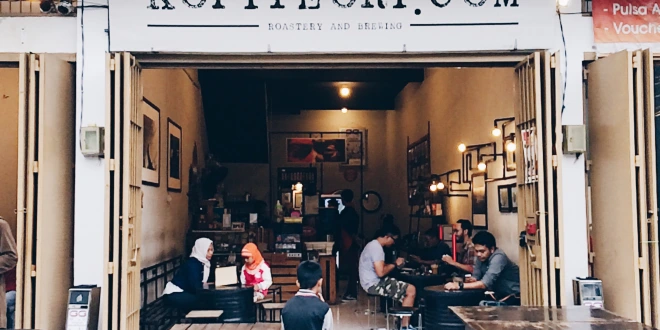

On Wednesday, September 19th 2024, the Wednesday Forum organized by the Religious and Cross-Cultural Studies Program (CRCS) at Gadjah Mada University (UGM) addressed the intriguing topic of Chinese coffee shops in Makassar. These shops have become important meeting places for individuals from diverse religious and ethnic backgrounds.
Syamsul Asri, a lecturer from the Indonesian Consortium for Religious Studies (ICRS), was the speaker at the event held in Room 307, UGM Graduate School. His presentation provided insights into the significance of Chinese coffee shops that have been operating since the 18th century throughout Makassar. These venues attract Muslim visitors, particularly from the Bugis and Makassar ethnic groups, who frequently come to enjoy coffee as part of their daily routine.
“These traditional coffee shops serve as social interaction spaces and foster community exchange, social cohesion, and coexistence between the majority Muslim non-Chinese groups and Chinese adherents of Buddhism, Confucianism, and Christianity. This is crucial given the historical context of racial cleansing against Chinese citizens, often seen as outsiders, with the most recent incident occurring in 1998 during the fall of the Suharto regime,” said Syamsul.
Syamsul added that the unexpected challenges posed by the COVID-19 pandemic have also reshaped ethnic relations, encouraging communities to adapt effectively to new circumstances. This adaptation ultimately benefits those involved in these transactions, reinforcing the hypothesis that, despite past racial cleansing or current pandemic-related policy restrictions, social harmony continues to thrive between indigenous groups and the Chinese community.
In conclusion, one key dynamic contributing to this harmony lies in Chinese coffee shops, which play a strategic role in facilitating interactions among interfaith and interethnic subjects. These places have become vital in countering divisive social policies implemented by the national government, especially during the COVID-19 pandemic, which created barriers to social interaction.
“The importance of Chinese coffee shops in Makassar as vital spaces for cultural exchange and social harmony is evident. As the world continues to grapple with issues of inequality and cultural diversity, these places stand as a testament to the strength of community and the resilience of human relationships,” Syamsul concluded.
Author: Asti Rahmaningrum
